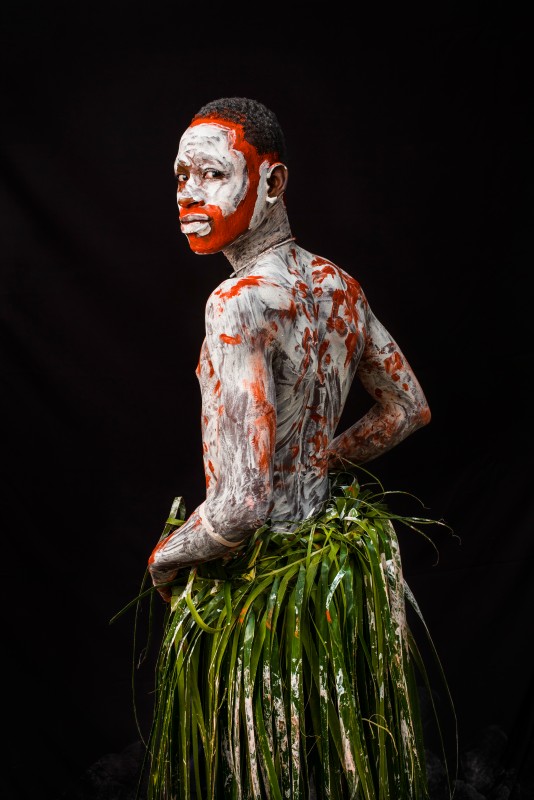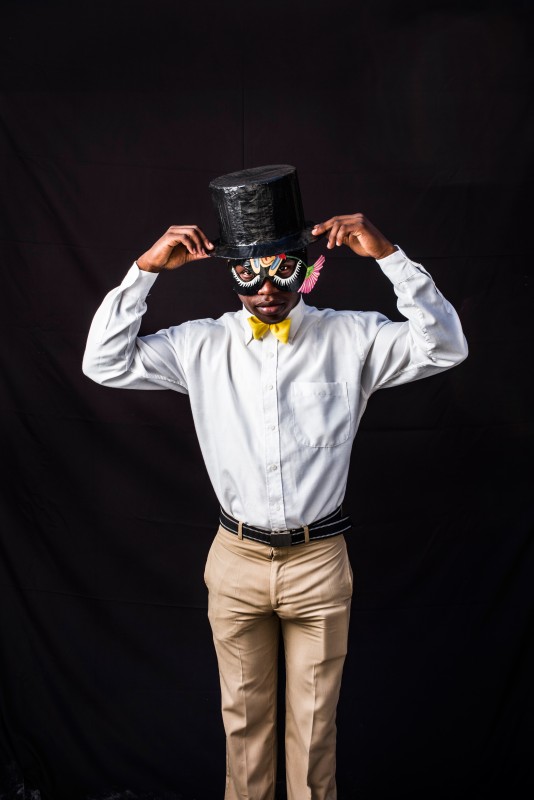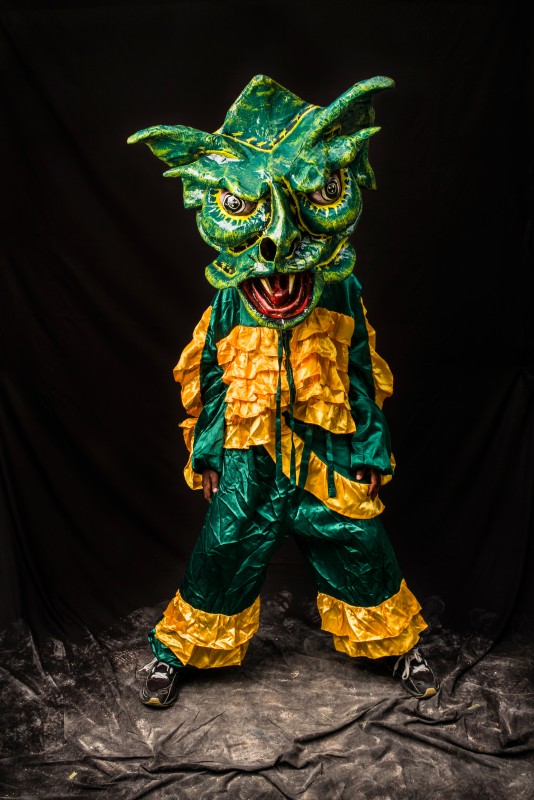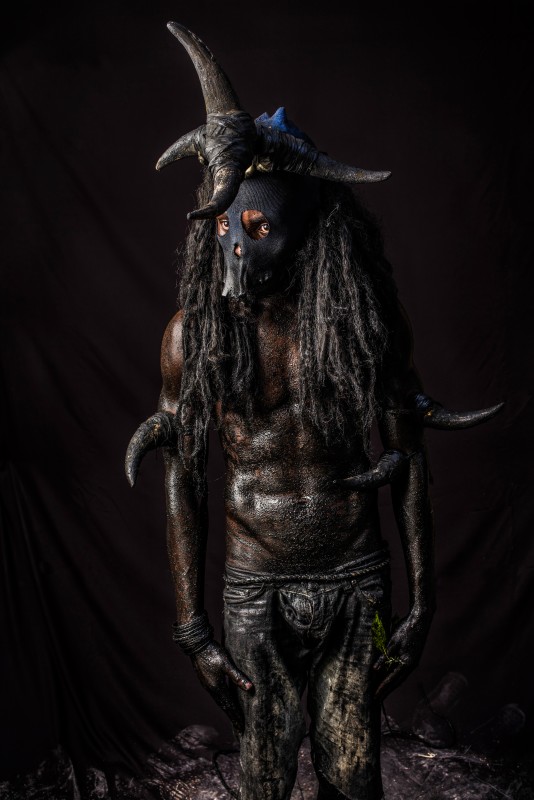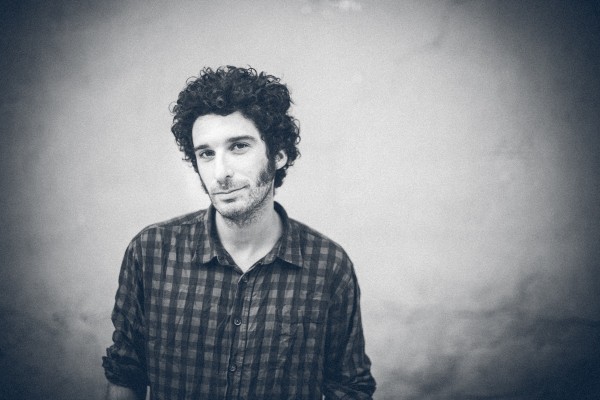Karnaval
Karnaval
Corentin Fohlen
May 26, 2017
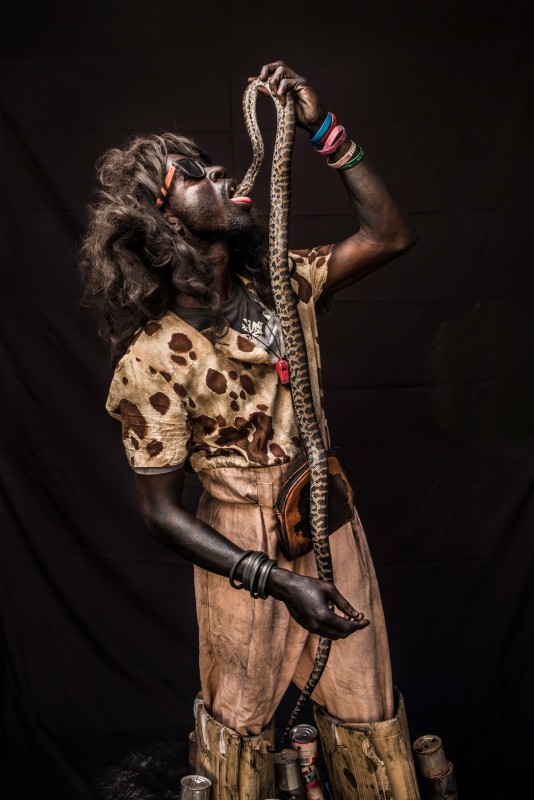
The costumes are very unique. There is one guy interacting with a snake. Was he a magician or a Vodou priest? This must have been very surreal… or is it quite usual to carry around animals?
The guy with the snake played with it. Like a snake charmer, he put the snake’s head on his mouth to impress me. In Vodou the snake is a spirit, but for this character, it’s just like a performance animal trainer, like a circus trainer. Just to impress people on the street.
How did you convince people to be photographed? What were your arguments and what did you say to them to make them go along with you?
I had two Haitian friends who helped convince people. I just talked a lot to convince them. I tried to explain that I was there to show another image of their country. People hate photographers because so many of them only come to show the poverty. It’s embarrassing for them that strangers come to see that; but because my work is to present another image, a cultural one, people find it easier to accept being photographed.
Besides that, what other challenges were there?
In Haiti it’s difficult to shoot on the street. People don’t like it and they ask for money. But I always refuse to pay! The photographers who pay to shoot are unprofessional and pervert the relationship with the people.
How many people did you miss because you didn’t pay?
I think a quarter of the people refused because of that. It’s huge. But for me it’s important to explain that it’s not possible to pay. It would be a lot money and it goes against my ethics.
What was your preferred distance to the people in the temporary studio?
Two metres.
Would you like to repeat a series like this in another place or country?
Why not? I already did it with refugee children in Lebanon in October 2016. It was after my first visit to Kanaval, before the second time I was in Jacmel, in February 2017.
Interview: Carla Susanne Erdmann
Find out more about Corentin’s work in LFI 4/2017.
Corentin Fohlen+-
Born in Quimper, France, in 1981, Fohlen wanted to become a comic strip artist, before discovering photography. He has been published in The New York Times, Paris Match, Libération, Stern, Le Monde and Die Zeit.
Fohlen has received a number of awards. He turned his extended stays in Haiti into the book, Haïti, which was published in January 2017 by Editions Light Motiv. More

